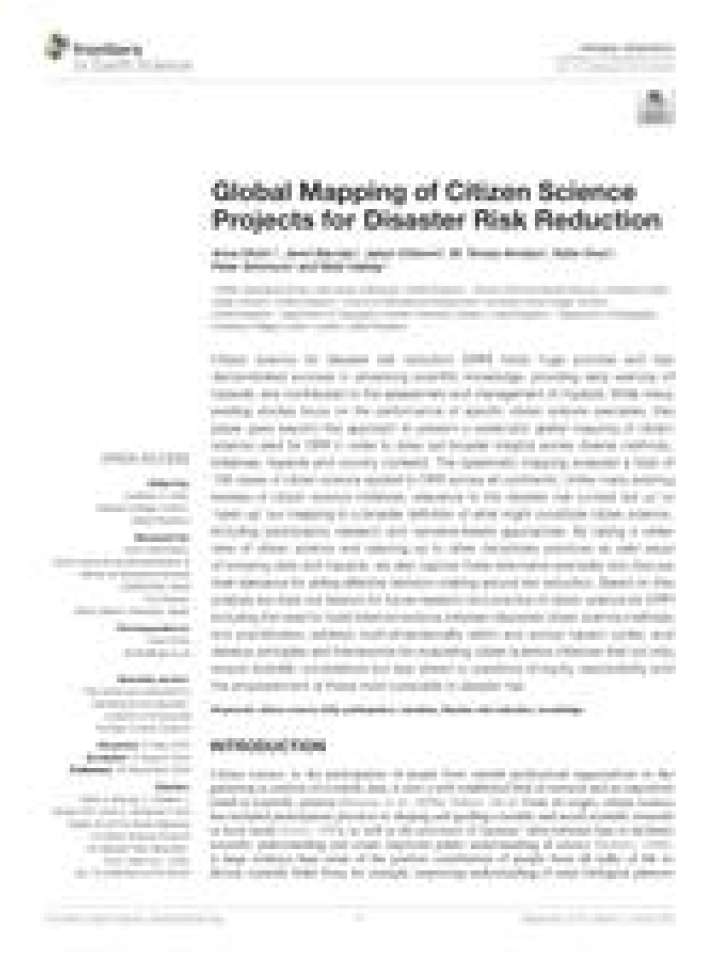Global mapping of citizen science projects for disaster risk reduction
This paper attempts to understand how citizen science is and could be applied to DRR, thus extending the characterization and analysis of citizen science from purely science and technology-led initiatives to include projects which adopt participatory methods and explore the role of vernacular and narratives for DRR. Citizen science for disaster risk reduction (DRR) holds huge promise and has demonstrated success in advancing scientific knowledge, providing early warning of hazards, and contributed to the assessment and management of impacts. While many existing studies focus on the performance of specific citizen science examples, this paper goes beyond this approach to present a systematic global mapping of citizen science used for DRR in order to draw out broader insights across diverse methods, initiatives, hazards and country contexts. The systematic mapping analyzed a total of 106 cases of citizen science applied to DRR across all continents. Unlike many existing reviews of citizen science initiatives, relevance to the disaster risk context led us to ‘open up’ our mapping to a broader definition of what might constitute citizen science, including participatory research and narrative-based approaches. By taking a wider view of citizen science and opening up to other disciplinary practices as valid ways of knowing risks and hazards, we also capture these alternative examples and discuss their relevance for aiding effective decision-making around risk reduction. Based on this analysis we draw out lessons for future research and practice of citizen science for DRR including the need to: build interconnections between disparate citizen science methods and practitioners; address multi-dimensionality within and across hazard cycles; and develop principles and frameworks for evaluating citizen science initiatives that not only ensure scientific competence but also attend to questions of equity, responsibility and the empowerment of those most vulnerable to disaster risk.
Explore further
